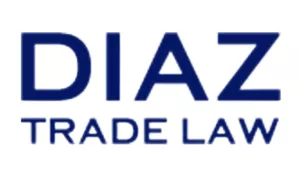- with readers working within the Law Firm industries
All parties involved in the importation of merchandise into the US, such as importers, customs brokers, exporters, shippers, and foreign suppliers and manufacturers, can file a Prior Disclosure (PD) with Customs and Border Protection (CBP) to proactively disclose certain false statements, acts, or omissions in violation of 19 U.S.C. § 1592. By doing so, these parties may benefit from reduced penalties as a result of the PD filing.
Here are seven tips for filing a prior disclosure with CBP:
- The PD Must be Submitted in Writing
Although oral disclosures are permissible, CBP's regulations at 19 C.F.R. 162.74 requires that oral disclosures must be followed-up with a written submission within 10 days. If you do decide to inform CBP orally first, it is recommended to keep a great paper trail of who you spoke with, what you advised CBP, and thereafter, ensure you summarize this in writing within 10 days of your discussion.
- Follow a Checklist to Ensure Your PD Has All the Required Information
The most critical part of the prior disclosure process is ensuring all required components are included. If a PD is deficient, it can be rejected and thereafter used against you. Required information CBP will be looking for includes:
- Identification of the class or kind of merchandise involved in the disclosed violation
- Identification of the importations by customs entry number, or indication of each concerned CBP port of entry and the approximate dates of entry
- Specific false statements, omissions or acts involved in the disclosed violation and how and when they occurred
- The true and accurate information or data which should have been provided in the entry
- Identification of any overpayments of duties, taxes, or fees for which you are seeking to offset against any underpayment
A detailed checklist from CBP's Informed Compliance Publication on Prior Disclosures (Appendix A) can be found here.
- File an Initial Submission Before You Have All the Facts
If you have identified a potential violation that CBP is unaware of and you wish to benefit from the PD process, you should file an initial submission even you do not have all the facts and details gathered. This initial submission is often referred to as a "blanket" submission, as you want to think of it as a blanket protecting all potentially non-compliant entries.
If you require additional time to perfect the disclosure, you should state so in your initial PD. According 19 C.F.R.§ 162.74(b)(4), you have 30 days to gather this information after your initial submission. Parties can receive one additional 60-day extension from FP&F which must be approved by the CBP Director of Field Operations (DFO).
- Audit Your Import History Through ACE
The best way to audit your import history in preparation for a PD is to pull your import history data on the Automated Commercial Environment (ACE). In the past, an Importer Trade Activity Report (ITRAC) request would have to be sent to CBP, with a letter stating you would pay up to $250 for the report, and you would have to wait 6-8 weeks for a password protected CD to come in the mail.
ACE is certainly a huge upgrade, as ACE is a free online system that allows the user to pull all import and export data for the entire statute of limitations (SOL) period. An importer must first request an ACE account, and we recommend attorneys be set up as a consultant to assist in pulling relevant import data. Once the data is pulled, it should be used to identify and include any possible violative entries.
- If Your PD is Not Accepted, File a Petition to Mitigate the Penalty
Even if CBP finds that the PD was invalid and ultimately issues a penalty, you can and should file apetition to request mitigation of the penalty amount and note the filing of the PD as a mitigating factor. Forinformation on factors that CBP often considers in order to mitigate penalties, review CBP's mitigation guidelines.
- If the Government Has Initiated an Investigation Against You, You Can No Longer File a PD
Like most disclosure programs across the federal government, the submission of a PD is not valid if CBP, Immigration and Customs Enforcement (ICE), or Homeland Security Investigations (HSI) does all the following:
- Discovers the violation
- Commences a formal investigation
- Notifies you of the commencement of the formal investigation
CBP defines "knowledge of the commencement of a formal investigation" in 19 C.F.R. 162.74(i) and a person is presumed to have knowledge in any of the following instances:
- When CBP informs the person of the type of or circumstances of the disclosed violation
- When a Customs Special Agent (from ICE or HSI), having properly identified themselves and the nature of their inquiry, had, either orally or in writing, made an inquiry of the person concerning the type of or circumstances of the disclosed violation; or requested specific books and/or records of the person relating to the disclosed violation
- When CBP issues a pre-penalty or penalty notice to the disclosing party
- When the merchandise that is the subject of the disclosure was seized
You can challenge the presumption of knowledge if you did not truly have knowledge that the investigation had commenced. However, this would be a difficult burden to satisfy when a party has received a penalty notice from CBP for example.
- A PD Doesn't Preclude Criminal Liability
If you submit a PD containing information which gives CBP reason to believe that a criminal violation has occurred, CBP, ICE, or HSI may refer that information to the Department of Justice (DOJ). Because PDs can carry potential criminal implications, you should proactively consult customs and/or criminal counsel prior to submitting a PD in which you disclose potentially criminal violations. Please note, however, that criminal prosecutions as a result of PDs are rare. According to CBP's guidance, "a valid prior disclosure of a non-fraudulent violation is rarely prosecuted by the U.S. Attorney's office."
Conclusion
A PD is an invaluable tool for importers seeking to proactively comply with CBP import requirements. Filing a legally compliant and ultimately accepted PD will substantially reduce any civil penalties and will additionally reduce the likelihood of criminal enforcement.
Diaz Trade Law has a strong track record of filing successful PDs. If you have uncovered a violation, get in touch with us right away.
Learn more:
- Bloomberg Law – Customs Administrative Enforcement Process: Fines, Penalties, Forfeitures and Liquidated Damages
- Bloomberg Law – Submitting a Prior Disclosure to CBP
- Webinar – ACE: Auditing Your Export History
- Webinar – Navigating CBP Regulations: Essential Practices for Import Success
- Why You Need Your Very Own ACE Account
The content of this article is intended to provide a general guide to the subject matter. Specialist advice should be sought about your specific circumstances.


